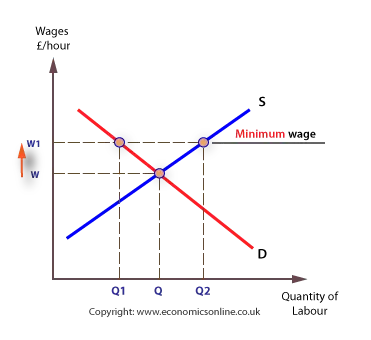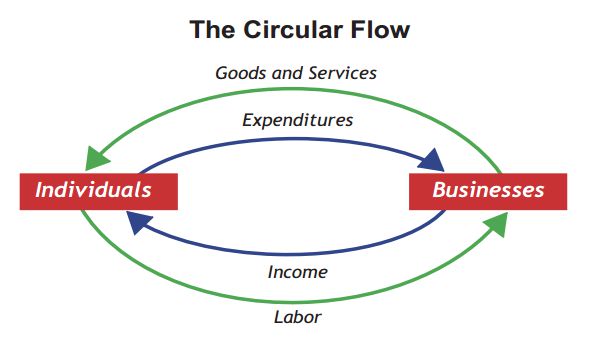Labour Market
1/9
There's no tags or description
Looks like no tags are added yet.
Name | Mastery | Learn | Test | Matching | Spaced | Call with Kai |
|---|
No analytics yet
Send a link to your students to track their progress
10 Terms

Labour market
Market where workers sell their labour and employers demand and buy their labour.
Households supply, firms demand
Factors that may determine wages of a job
Demand and supply of labour
Skill and education levels
Experience
Geographical location
Government policies
Industry type
Wages in a free market
Forces of supply and demand solely determine wages.
The government and trade unions will exert influence on wage levels
Local labour market
Labour market within a short commuting distance from workers’ home.
National labour market
Labour market that covers a nation.
International labour market
Labour market covering many countries or worldwide.
Circular flow of income
Relationship between households and firms in terms of income.
Businesses provide to households income through wages
Households use wages to purchase goods / services from other businesses
Businesses use this income to pay wages
Repeats….
→ A circular flow of income

Labour immobility
Inability for workers to move between jobs.
Factors that cause labour immobility
Lack of skills required
Geographical immobility
Information failure (not enough information about a job / available jobs)
Examples of information exchange
Wage ranges
Conditions of employment
Age requirements
Levels of competition
Location of job